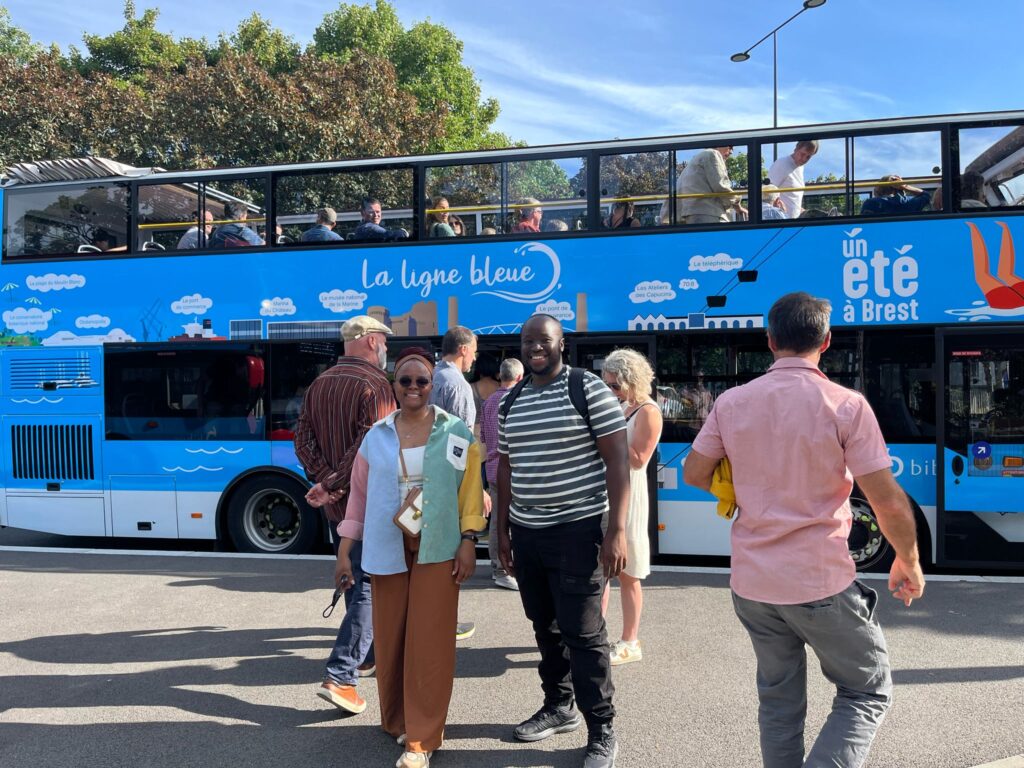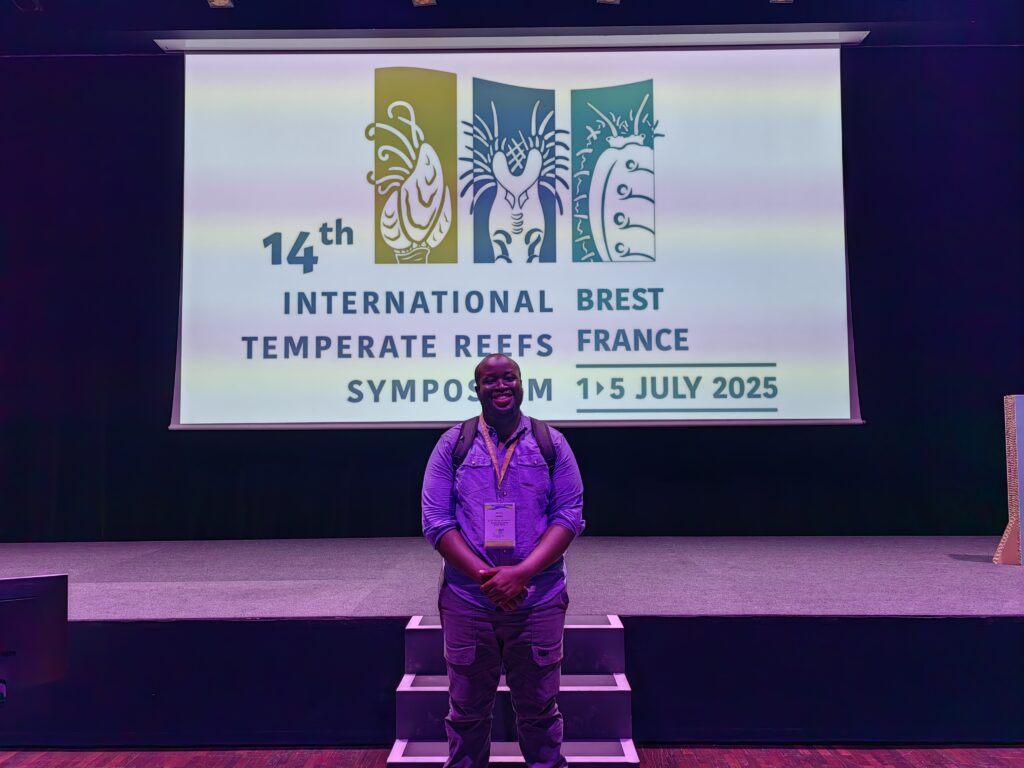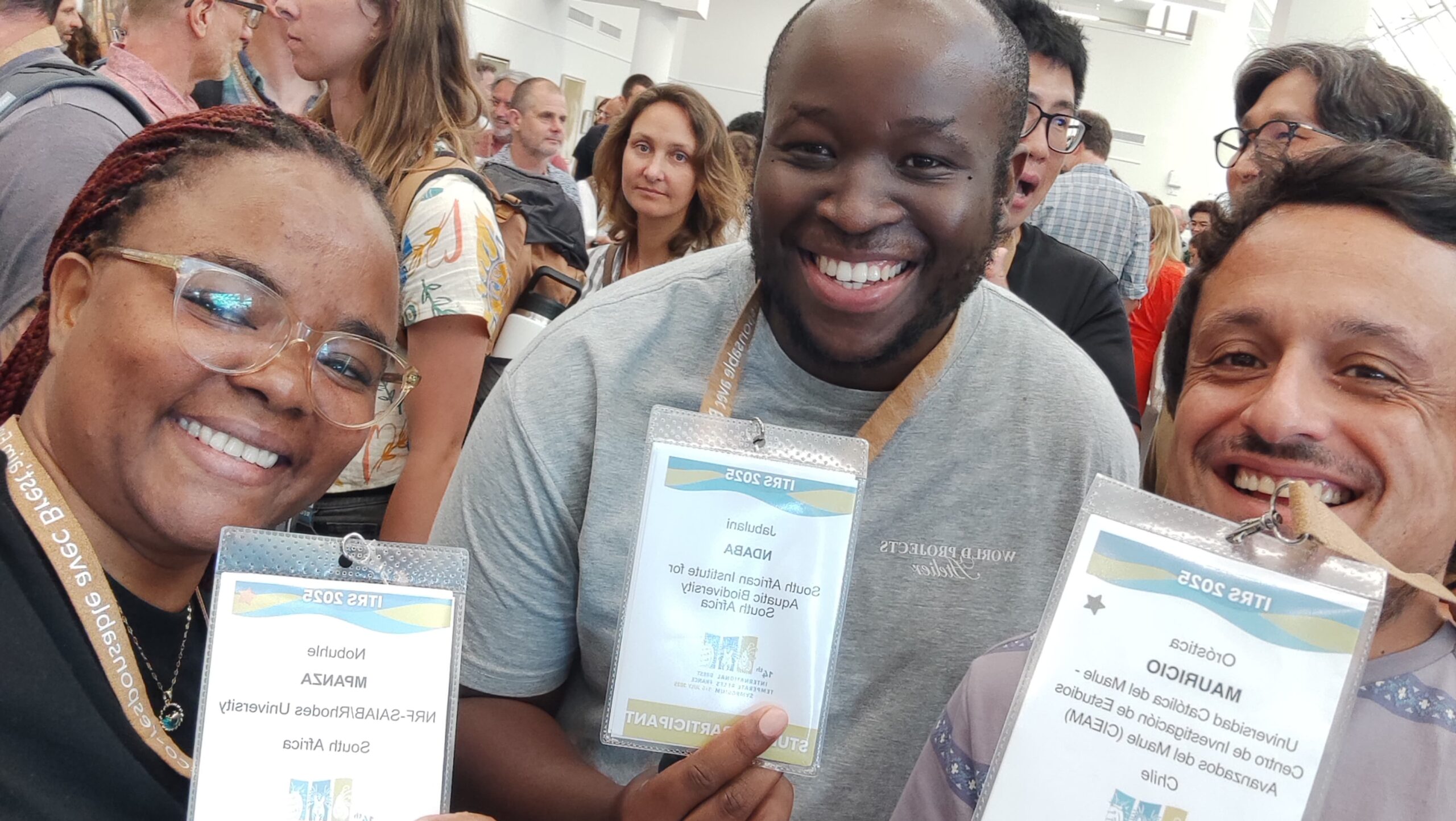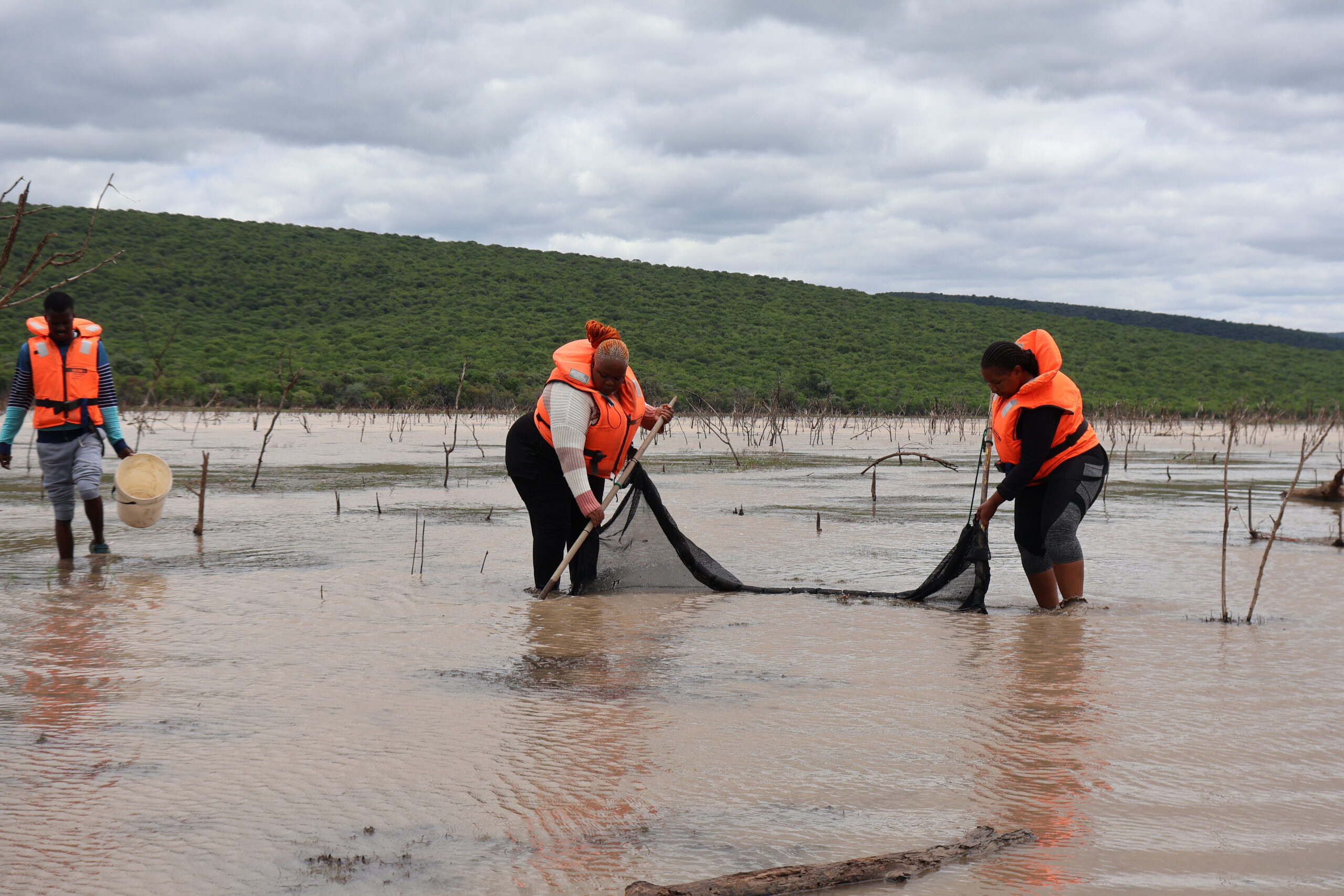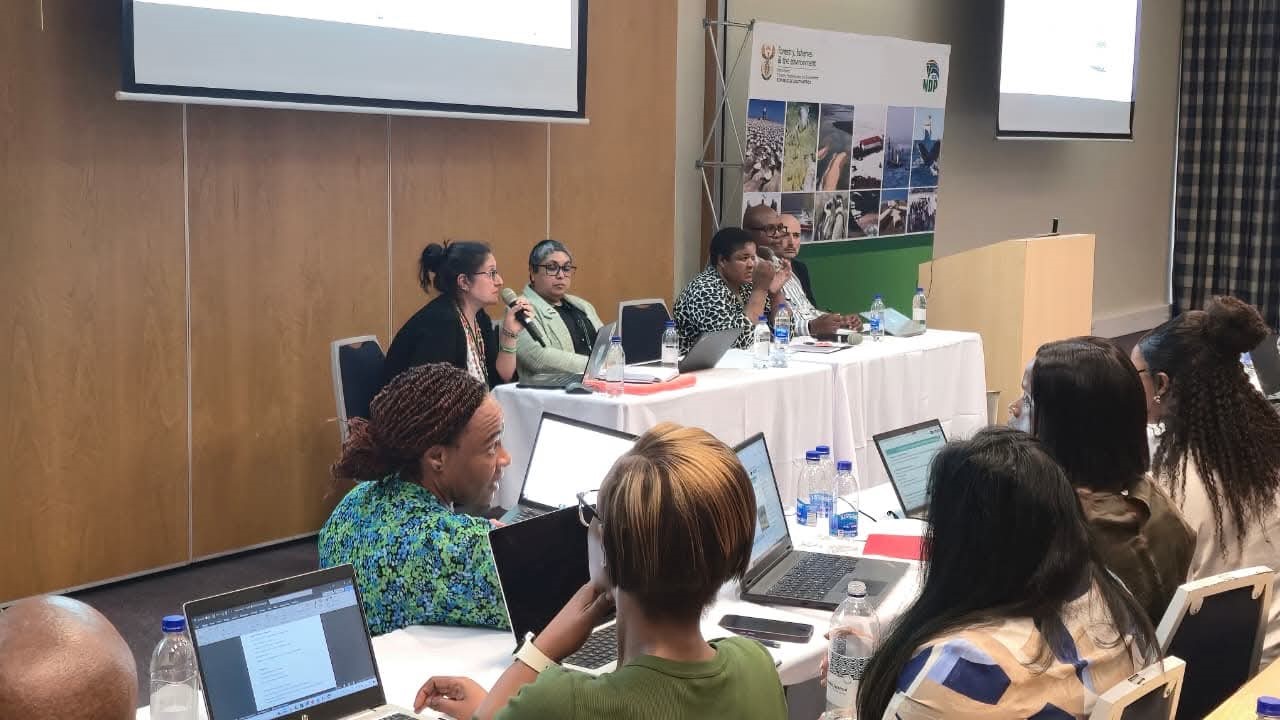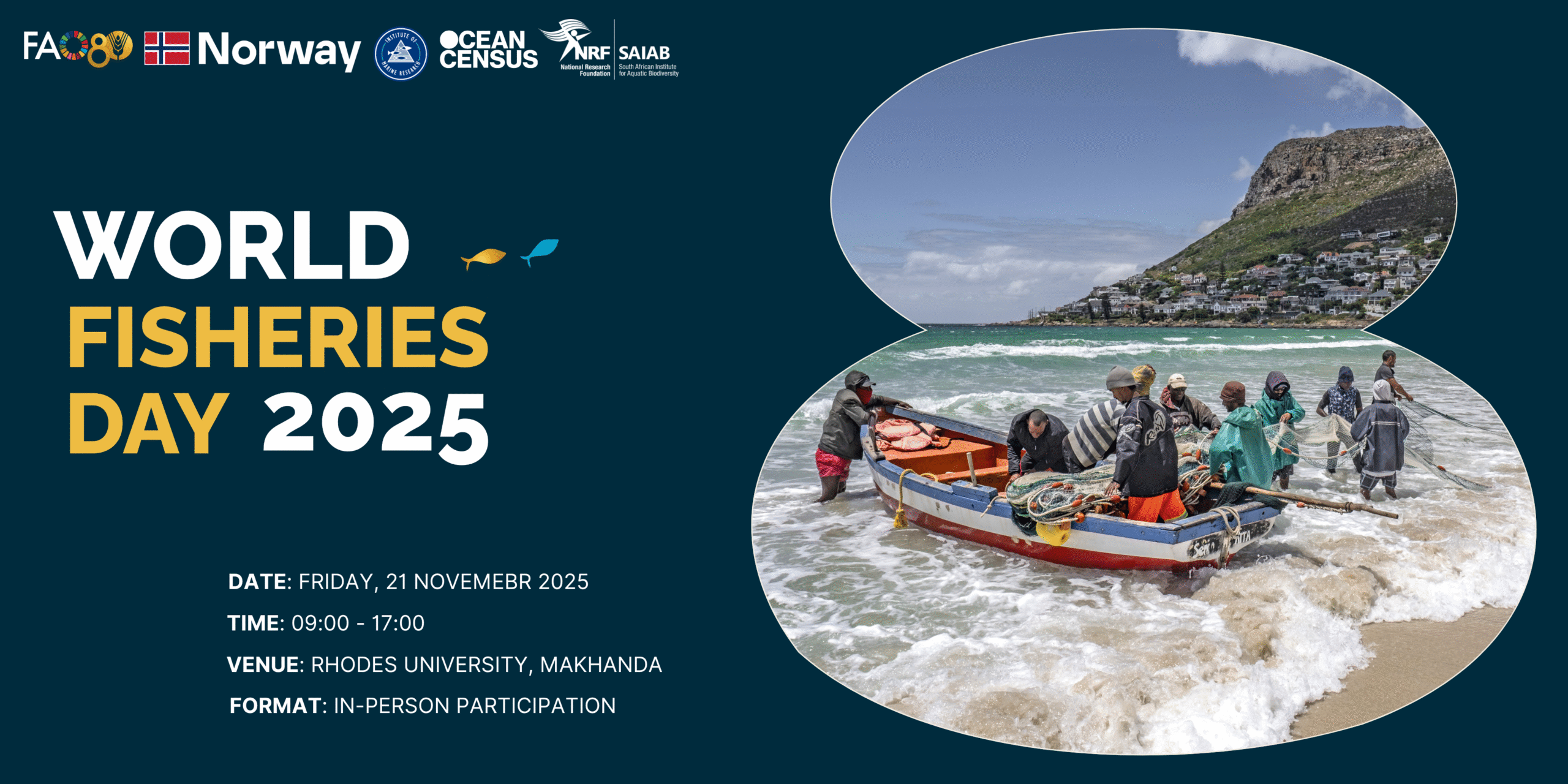By Nobuhle Mpanza and Jabulani Ndaba (NRF-SAIAB PhD Research Students)
NRF-SAIAB research students Nobuhle Mpanza and Jabulani Ndaba recently represented South Africa at the 14th International Temperate Reefs Symposium (ITRS) that took place from the 1st – 5th of July 2025 in Brest, France. Under the theme ‘Ocean Sprawl’, the two PhD students shared their research on combining artisanal Indigenous Knowledge practices with modern science, to explore nature-based solution for coastal rehabilitation and future management of impacted urban coastlines. As representatives of a growing movement of African eco-engineering ecologists, their participation also added an important geographic diversity to the conversation, emphasising the global relevance of locally rooted research. The event brought together a diverse and dynamic mix of 387 participants from 29 countries and 5 continents, all united by a shared passion for the health and sustainability of our planet’s marine ecosystems.
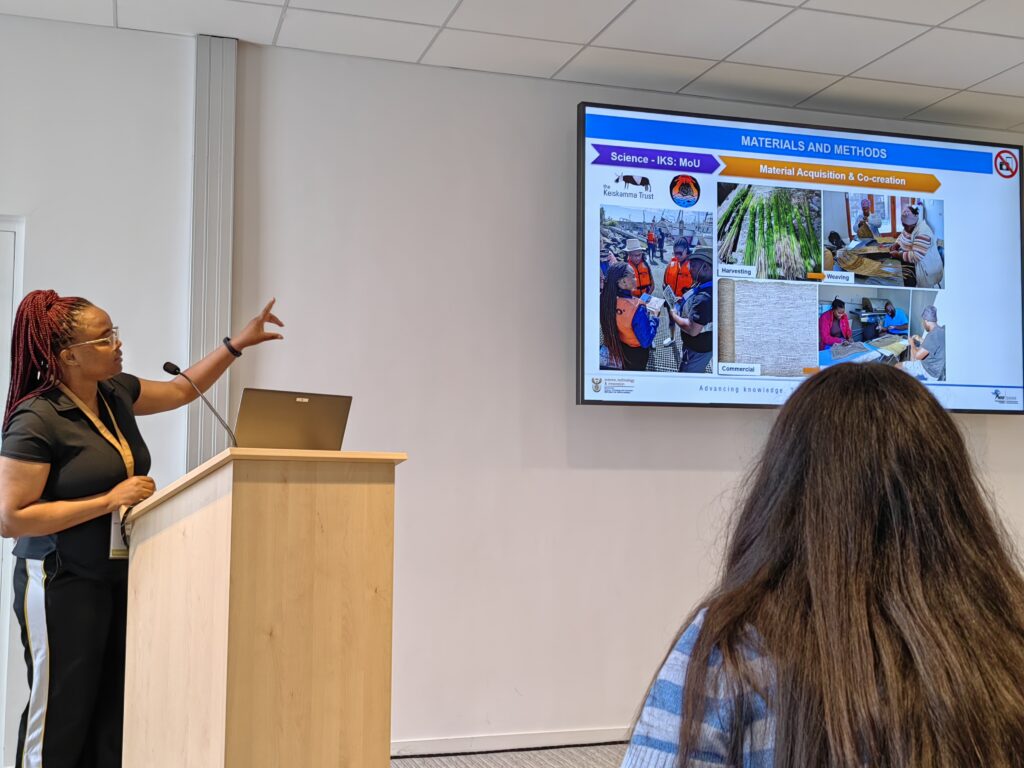
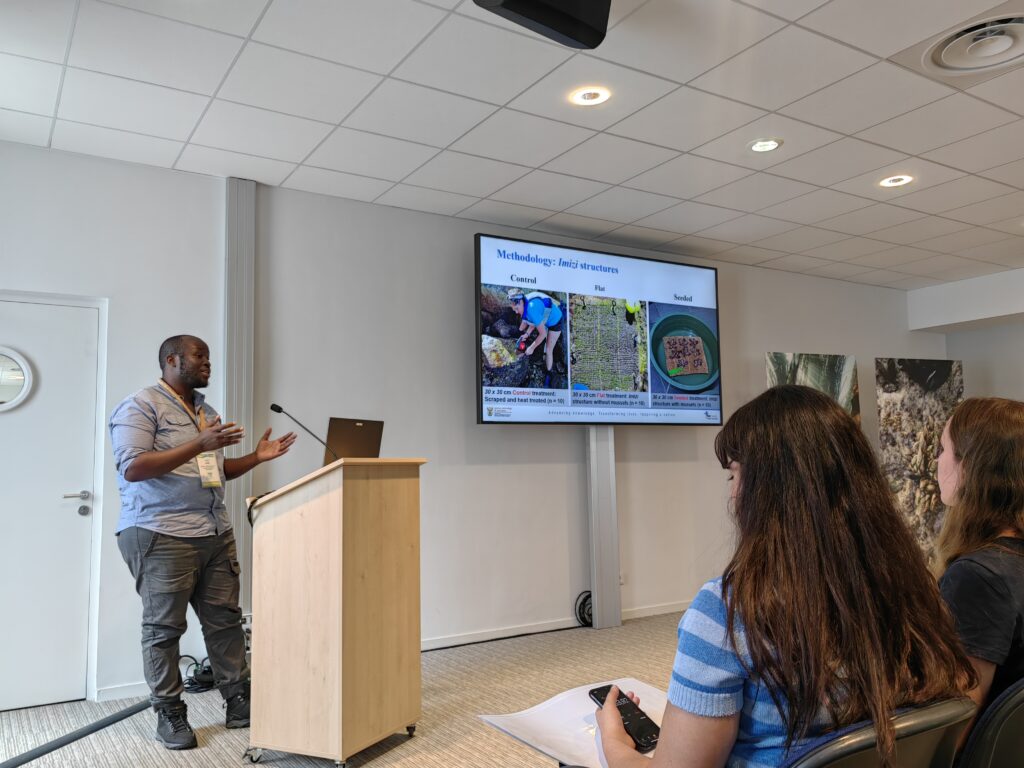
They shared that, “It was a motivational experience to literally realise that cities across the globe are all grappling with similar issues around urbanisation and marine ecosystem degradation, with scientists actively coming up with several innovative solutions to counteract the impact of urbanisation, a movement that the Coastal Ocean Sciences Team (COST) at the NRF-SAIAB is uniquely sharing for South Africa.” While presenting their work on an international stage was a major milestone, a standout moment for both early career researchers was the opportunity to meet several renowned pioneers in the field of marine ecology and ecological engineering. Influential figures such as Prof Hawkins (University of Southampton), Dr Mayer-Pinto (University of New South Wales), Dr Firth (University College Cork), Prof Williams (University of Hong Kong) offered inspiration and motivation to continue forward. “These are names we have been citing throughout our PhDs; scientists whose work laid the foundation for the field we are building our careers in” said Nobuhle.
A platform for emerging voices
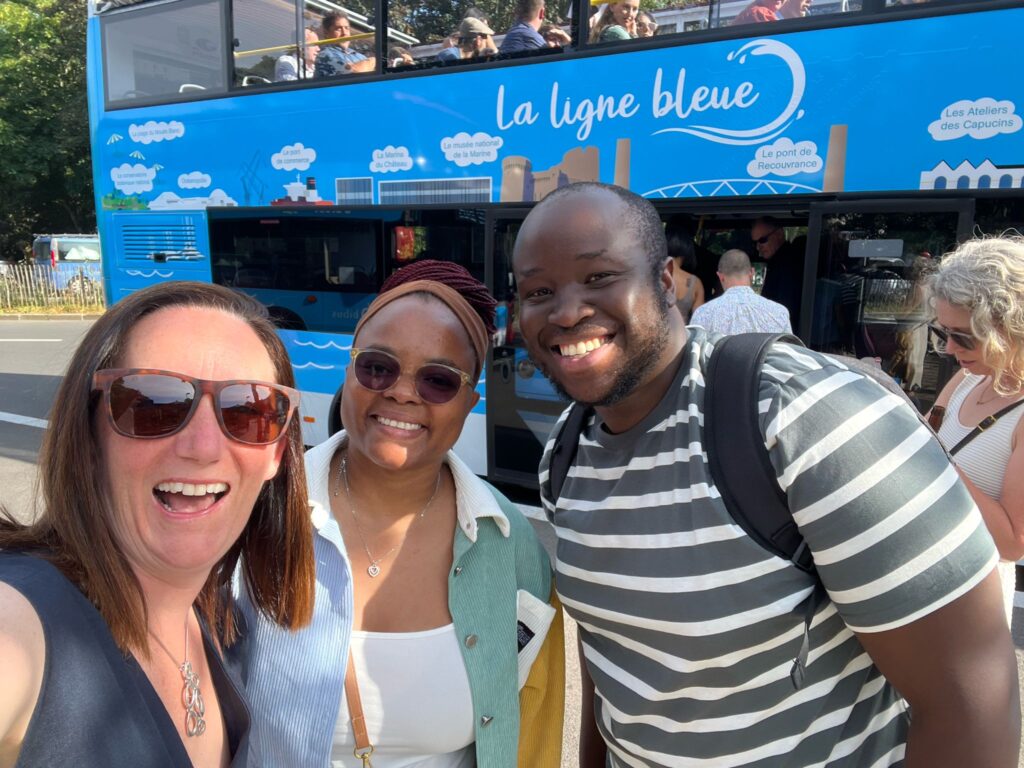
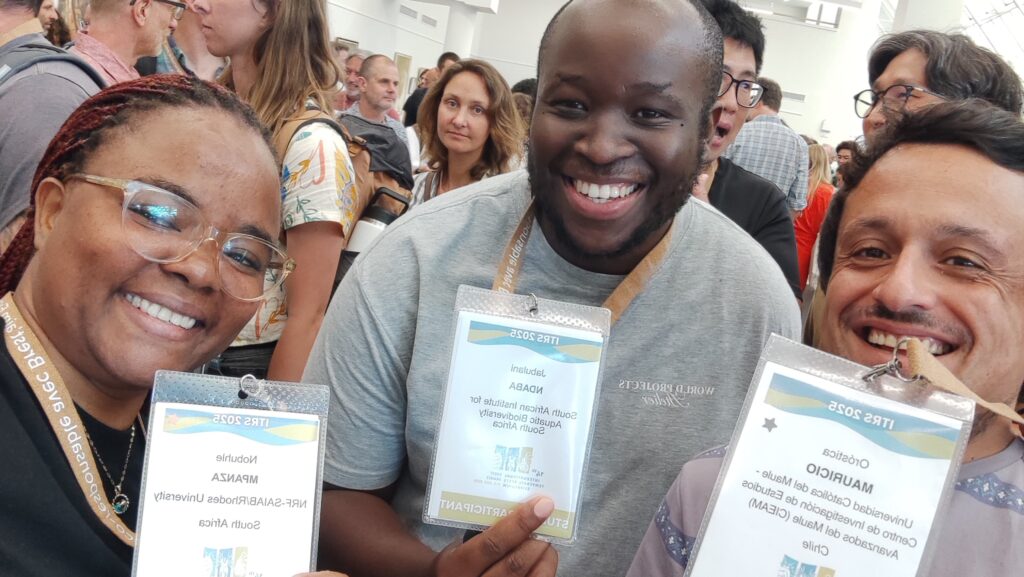
The conference reinforced the importance of providing early career researchers with platforms to share their work, engage with international peers, and shape the future of marine science. The unique participation of early career African researchers like Nobuhle and Jabulani reflects a new generation of thinkers who are breaking disciplinary silos, integrating Indigenous Knowledge, new assessment methodologies in coastal eco-engineering, and advocating for solutions that are both scalable, nature-friendly and locally relevant. The next decade will be critical for the world’s coastal ecosystems. As increasing environmental pressures such as ocean sprawl and climate change will continue to negatively impact marine ecosystems. Yet, as ITRS 2025 experience demonstrated, there is no shortage of knowledge, creativity, commitment, and scientific rigour within the international community. We know that there is hope that future coastlines will not only withstand human impact but thrive in synchrony. It is also promising to see that young scientists from all walks of life are on the same mission in mind and we urge more to join!
